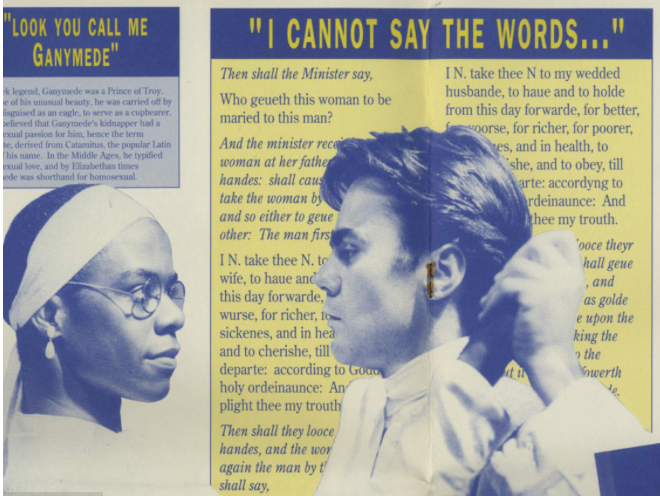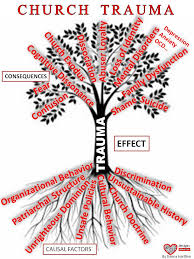According to Facebook, my mother and I saw the Broadway musical Wicked on tour in Seattle exactly twelve years earlier. To celebrate her 70th birthday, I’d bought tickets to a special performance benefiting the marriage equality campaign. When Mom turned 80, we saw Kristin Chenoweth at the Mount Baker Theater. For her 60th birthday, I got tickets to see the incomparable Barbara Cook sing Sondheim at Benaroya Hall.
At Bellingham High, I was waiting to share another unique musical event with my mother: the opening concert of the Whiffenpoofs of 2025’s World Tour.
The Whiffenpoofs are North America’s oldest collegiate a capella singing group. Fourteen tenors, baritones, and basses are tapped from each Yale graduating class. They sing a repertoire of elegantly arranged standards along with contemporary songs, all in tight harmonies. In addition to their concert tour, each year’s crop of Whiffenpoofs makes an album showcasing their talents. Together with my ancient vinyl and CDs, iTunes can fill an entire weekend with a guilty pleasure playlist. It’s my favourite kind of music.
The reason the Whiffenpoofs of 2025 started their World Tour at Bellingham High School is Logan Foy. He’s the student chosen as this year’s music director (called the “pitchpipe”). Logan graduated from BHS, where he was the star of its music and theatre programs. He was also a proudly out member of the high school’s Gender/Sexuality Alliance. Each Whiffenpoof got a solo during the concert. Logan assigned himself the group’s classic arrangement of “Midnight Train to Georgia,” with he/him pronouns.
The Whiffenpoofs sounded great, and Logan basked in the hometown crowd’s love. As my mother and I walked out of the auditorium, I overheard a middle-aged man tell someone that Logan began studying with an opera coach while he was still in elementary school. It was Logan’s beaming father. I usually don’t talk to strangers. But I went over to Mr. Foy and introduced myself as a gay PFLAG dad. I said I’ve been going to Whiffenpoof concerts for 37 years, and told him he should be proud to hear and see what his son has accomplished.
 |
| The Whiffenpoofs of 2018 - L.W.W.B. |
The last time I saw the Whiffenpoofs perform live was in 2018, when their tour included a stop in Seattle.
In 1975, President Ford signed legislation opening the service academies to women. Four years later, the Air Force Academy Class of 1979 adopted the motto “Loyalty, Courage, Wisdom, Bravery.” However, the Commandant cancelled their order for class rings engraved with the initials “L.C.W.B.” when he discovered the letters actually stood for “Last Class With Balls.” (At best – according to a Congressional report cataloging misconduct at the academy, the Class of 1979’s real motto was either “Last Class Without Bitches” or “Last Class Without Broads.”)
Yale College was founded in 1701, but women weren’t admitted until 1968. Similarly, after a 110-year wait, the gentlemen I saw perform in Seattle selected the group’s first female singer as a member of the Whiffenpoofs of 2019.
This year’s tenor section includes four women. It was my first time attending a co-ed Whiffenpoof concert. As someone who generally prefers his harmonies in the bass clef, I expected to be a curmudgeon. But the inclusion of a few women was not enough to tip the overall balance, and did not spoil the familiar arrangements. Instead, their voices added to the power, range, and variety of the performances.
Still, the concert sounded different. Our brains process male and female voices differently. Hearing a woman’s voice “triggers the auditory section of an audience’s brain,” which is “the area that’s used to analyze.” Because female voices are “more easily decoded,” they seem “clearer than their male counterparts.” Sure enough, this was my first time at a Whiffenpoof concert where I felt like Cole Porter’s lyrics were being beamed directly into my head.
“Singing Can Be a Drag” is Vancouver Men’s Chorus’s biggest annual fundraiser. Talented and extroverted members of the chorus don spectacular drag outfits and sing show-stopping numbers. No lip synching allowed.
I’m not the kind of guy who sings solos or wears drag. Instead, every year I volunteer at the event as an usher. This year a woman came up to me as I guided patrons to their seats. She said “You've shaved your beard since the holiday concert, but I recognized you. I wanted to let you know you have the best smile in the chorus. Whenever I watch you sing, the word I think of is ‘joyous.’”
In the classic fairy tale “The Ugly Duckling,” the hero of the story is the supportive duck mother – not the awkward swan who was lucky to find himself in the most affirming of nests. No parent expects a Whiffenpoof. But I will be eternally grateful for a PFLAG mom who raised me with the joy of music.












































